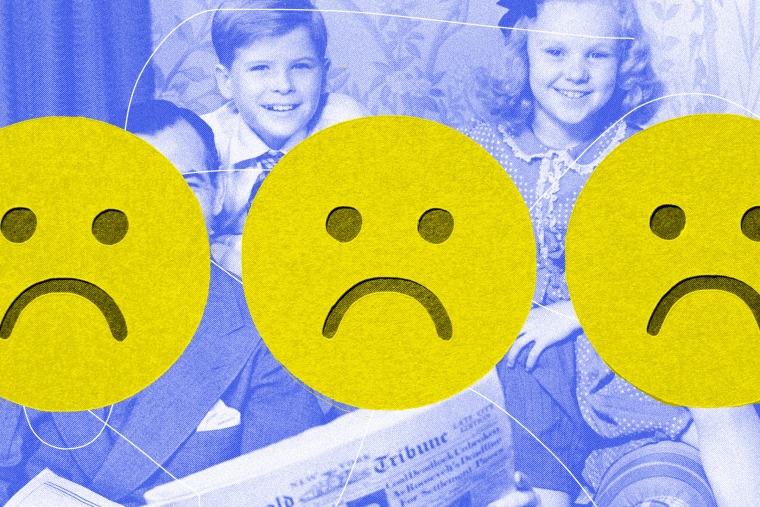All of the measures we use to determine how Americans are doing tell us that our nation is trending quickly in a very positive direction. Leading quality-of-life indicators are flashing green as of late. The unemployment rate has never been this low for this long, inflation has cooled, GDP is surging, and violent crime rates are tumbling. So, then, why are more and more Americans feeling so unhappy?
Last week, Gallup released its annual World Happiness Report. For the first time since the report launched 12 years ago, the U.S. fell out of the top 20 happiest countries. Self-reported happiness in the U.S. has been on the decline for the past two decades; this year’s drop was driven mostly by young people, who increasingly feel like playing by the rules no longer guarantees a successful and meaningful life.
It was no less than our Founding Fathers who commanded government to set the conditions for people to find true contentment.
The disconnect between improving data on the economy, crime and other metrics and self-reported happiness raises an important question: Are we measuring the success of our public policy correctly?
This is an important question to answer, because government does need to be in the happiness business. The public sector isn’t responsible for delivering the last mile of personal happiness — what you’re passionate about, whom you connect with, where you find purpose and meaning — but it is responsible for setting the rules for a society in which finding happiness isn’t so hard. It was no less than our Founding Fathers who commanded government to set the conditions for people to find true contentment. It’s right there in the Declaration of Independence — the state must guarantee the right of people to pursue happiness.
But the current public policy trajectory clearly isn’t accomplishing that objective. And maybe that is because too many of our nation’s leaders don’t really understand what brings true happiness. For the past 86 years, the Harvard Study of Adult Development has conducted the longest in-depth longitudinal study on what is required to live a happy, healthy life. Decades of interviews, questionnaires and data analysis have revealed a simple conclusion: It’s not the ability to climb the corporate ladder or reach the highest income bracket that predicts a happy life — it’s the quality of deep, nurtured relationships with other people.
If connection and community are necessary ingredients for happiness, it should come as no surprise that Americans, especially young people, are feeling unhappy. In 2021, 49% of Americans reported having three or fewer close friends, compared to 27% in 1990. Time spent in person with friends and family is down, while time spent on social media is way up. More people live alone than ever before. Fewer people belong to a church, a synagogue or a mosque. No wonder people are feeling more unhappy than ever.
Some of this retreat from society is cultural and personal, but much of this Great Withdrawal has been caused by bad public policy choices. The failure to regulate social media has caused us to retreat into our devices, trading meaningful in-person relationships for insufficient virtual ones. The decision to keep wages low, forcing people to work longer hours just to maintain the same quality of life, has eroded the time we have left to hang out with friends, attend church or engage in hobbies. The choice to look the other way as corporate monopolies gobble up the market has led to rising costs and hollowed-out downtowns and main streets.
At almost every turn, we have created structural obstacles to living a happy and fulfilled life.
The sum of these decisions has left Americans feeling not just lonely, but also powerless. It’s difficult to be happy when it feels like no matter what you do or how hard you work, the system is designed to benefit only the people at the very top. Finding your purpose is nearly impossible when something as simple as providing a good life for your family feels out of reach. The quest for happiness is perhaps the most fundamental piece of the human experience, and yet at almost every turn, we have created structural obstacles to living a happy and fulfilled life.
Low unemployment rates and a growing economy are important objectives, and of course it’s easier to be happier if you have a job. But these indicators can’t serve as government’s only measures for what makes a successful policy. We should also pursue an agenda that rebuilds our connections and obligations to one another — the proven necessary foundation to broad-based happiness.
